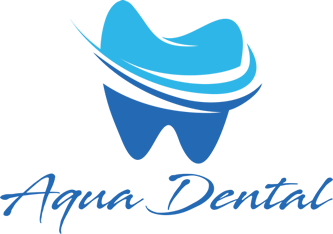Lip licking may be a result of your child having dry or chapped lips. He or she may continuously and unconsciously lick or suck on their lips for moisture. However, the pattern can continue even after their lips become healthy. Kids may suck their lower lip when in a new environment or unfamiliar situation as a coping mechanism. It may develop as a habit and continue even when your child is relieved of the stress. Lip sucking can also occur if your child experiences malocclusion or a severe misalignment or incorrect relation between the teeth or jaw. The top teeth protrude over the bottom lip, creating an ideal condition for lip sucking.
Now that we know why your child may have a habit of licking or sucking their lips, let’s talk about potential issues with these lip habits.
Lip Licking
You will probably notice that your child has some irritation around the mouth and lips appear swollen. Problems like swollen lip tissue, irritated oral facial tissue around the mouth, and possible malocclusion are a few of the oral health issues caused by lip licking. The constant bathing of the lip tissues in the saliva is very irritating as well, promoting the redness and chapping of the perioral tissues.
Lip Sucking
You will likely notice lip irritation. Children who suck on their lips may exhibit a problem with occlusion and a noticeable overjet. Your child may be placing their upper lip over the lower lip and sucking on the lip tissue.
Either of these lip habits affects swallowing, with an abnormal position of the lips. Depending upon the length of time the behavior is practiced, tissue trauma, nerve, and facial ramifications may be noticed. Prolonged lip licking, biting, and/or sucking can affect both the oral and perioral tissues, Because of the swelling and irritation of the lips, your child may have an intolerance to certain foods or dental products. For instance, when your child drinks lemonade, it may burn.
Lip habits may be more difficult to dissipate in children since they do not have an established way of coping with certain behaviors. Some children may actually continue a habit to gain parental attention once a focus has been established on the actual behavior. Children need to understand the consequences of the habit, and those younger than eight years old may be unable to fully assist in trying to eliminate the habit.
Help Your Child Break The Habit
With most children, these are temporary habits that will disappear without any prompting on your part. But if it persists, with patience and persistence, you can help your child break the habit with these tips:
· Do not continually draw attention to or chastise the behavior. Instead, offer lip balm or soothing cream for the child to apply. It serves to distract the child while also improving the health of the lips.
· If your child expresses frustration or unhappiness about the habit, have faith and offer support. Offer a hug and word of encouragement.
· Divert the child’s attention in stressful situations. Draw them to positive activities which may change the thinking in their mind.
· Praise the child when you notice the child is not using lip sucking as a coping mechanism or just unconsciously doing it.
· Offer water to drink regularly. Stay away from sweet drinks which may trigger the child to lick the lips instinctively. However, if your child stays hydrated with water the lips may get healthier.
· Offer sugar-free candies. The sucking of the candy may serve to replace the need for lip sucking. If they switch the habits, you can wean them from the candy.
· Apply vitamin E or another lip moisturizer at night, every night. If the reason is dry lips, employ as many tools to combat it. Have the child carry around lip balm and use it throughout the day.
If you find that you’ve tried everything, and your child is still biting or licking their lips constantly, call us at 918.455.7700. Drs. James and Samuel Owens can help come up with a plan to alleviate the lip habit!


Hi, My grandson is 5yrs old and sucks his bottom lip as if he’s sucking a pacifier and his teeth are not aligning. How can you help me.
Hello. Ever since my six year old lost his first bottom front tooth he started sucking his lip through the hole causing a large lump of something im assuming is tissue which he still continues to suck even after the tooth grew back in. How can I stop this?!?!